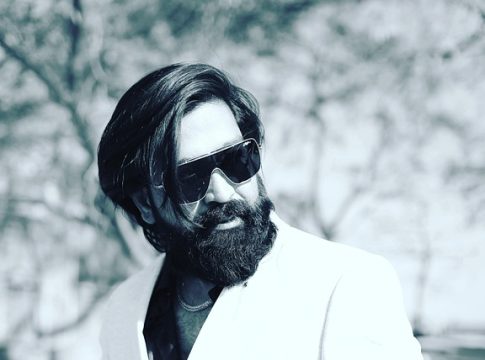Cinema has transformed dramatically since its inception, and it’s largely thanks to a handful of visionary directors who took bold creative risks. These directors not only pushed the boundaries of storytelling but also influenced generations of filmmakers while shaping audience expectations. Understanding their impact isn’t just for film buffs; it enriches our appreciation of the medium we love. Here’s a look at ten directors who changed cinema forever, igniting imaginations and presenting new ways to experience stories.
1. Alfred Hitchcock
Known as the "Master of Suspense," Alfred Hitchcock revolutionized the thriller genre, bringing psychological depth and a unique brand of tension to the screen. Films like Psycho and Rear Window not only captivated audiences but also introduced innovative techniques such as the use of editing and camera angles to evoke emotion. Hitchcock’s meticulous craftsmanship paved the way for modern suspense and horror films, setting standards for narrative structure and character development that are still felt today.
2. Akira Kurosawa
The genius of Akira Kurosawa transcends cultural boundaries. His films, such as Seven Samurai and Rashomon, introduced complex character arcs and multi-layered narrative techniques that went on to reshape storytelling in global cinema. Kurosawa’s influence can be seen in countless films and directors, including George Lucas and Martin Scorsese. His work demonstrated that cinema could be a profound exploration of human nature, establishing a legacy that continues to inspire filmmakers worldwide.
3. Federico Fellini
Federico Fellini was a master of blending fantasy with reality, using vivid imagery and surrealism to tell stories that often reflected his own life experiences. Films like 8½ and La Dolce Vita challenged conventional storytelling and encouraged directors to explore their inner worlds. Fellini taught audiences that film could go beyond mere entertainment to become an experience that evokes dreams, emotions, and reflections on society. His unique narrative style continues to inspire modern filmmakers in their quest to create more meaningful stories.
4. Jean-Luc Godard
A leading figure in the French New Wave movement, Jean-Luc Godard disrupted traditional filmmaking with his experimental techniques and radical narratives. Godard’s films, such as Breathless, introduced jump cuts, fragmented narratives, and self-referential storytelling. His daring approaches challenged the status quo, encouraging filmmakers to be bold and innovative. By breaking down the barriers of mainstream cinema, Godard opened doors for creativity, allowing directors to experiment without fear of repercussion.
5. Martin Scorsese
Martin Scorsese’s body of work spans decades and genres, but his focus on themes like identity, morality, and the American experience has redefined what it means to tell a story through film. With classics like Taxi Driver and Goodfellas, Scorsese brought gritty realism and dynamic storytelling to Hollywood. His mastery of intricate character studies and the use of music as a narrative device have profoundly influenced modern cinema, inspiring countless filmmakers to look deeper into their characters’ psyches.
6. Steven Spielberg
Few directors have reached the level of acclaim and influence that Steven Spielberg has. His unique blend of spectacle and emotional depth in films such as Jaws, E.T., and Schindler’s List made him a household name. Spielberg understands the importance of audience connection, and his ability to tap into universal themes makes his work timeless. By skillfully merging commercial and artistic elements, he has set a standard that many aspire to, forever altering the landscape of popular cinema.
7. Orson Welles
Orson Welles is best known for his groundbreaking film, Citizen Kane, which revolutionized narrative structure and cinematography. Welles introduced innovative techniques like nonlinear storytelling and deep focus, setting new standards for visual excellence in cinema. His work has had a lasting impact on filmmakers, emphasizing the importance of storytelling and artistry. Welles’s contributions remind us that film is an art form that can provoke thought and inspire creativity.
8. Spike Lee
Spike Lee brought issues of race and social justice to the forefront of American cinema, using his films as a platform for dialogue and change. His movies, such as Do the Right Thing and Malcolm X, not only entertained but also challenged audiences to confront uncomfortable truths. Lee’s unique style, characterized by bold visuals and strong narratives, has inspired filmmakers to use their craft as a means of activism. He has shown that cinema can be a powerful tool for change, provoking thought and sparking conversations that matter.
9. Christopher Nolan
In a world where blockbuster films dominate the box office, Christopher Nolan stands out as a visionary artist who pushes the boundaries of storytelling through films like Inception and Dunkirk. His intricate plots and masterful manipulation of time and space have captivated audiences and set new trends in blockbuster filmmaking. Nolan’s approach demonstrates that commercial success and artistic ambition can coexist, reshaping the landscape for future filmmakers.
10. Hayao Miyazaki
Hayao Miyazaki is a master storyteller whose animated films have touched the hearts of viewers around the globe. From Spirited Away to My Neighbor Totoro, Miyazaki’s work emphasizes imagination, nature, and profound emotional resonance. His unique approach to animation challenges the perception of the medium, proving it can convey deep messages and complex narratives. By merging art and storytelling, Miyazaki invites filmmakers to explore the potential of animation and its ability to transcend cultural boundaries.
The Lasting Legacy of Visionary Directors
These visionary directors who changed cinema forever have not only shaped the films we watch but have also influenced the very way we think about storytelling. Through their innovative techniques and fearless exploration of human emotion, they’ve left an indelible mark on both audiences and filmmakers alike. Understanding their contributions enriches our viewing experience, reminding us that every film is a piece of art, crafted by passionate creators.
What’s your favorite film from one of these directors, and how did it impact your perception of cinema? Let us know in the comments!

Covers viral stories, pop culture, and breaking celebrity news.
Bio: Jamie has a sharp eye for what’s buzzing online, tracking social media trends and entertainment headlines around the clock.

